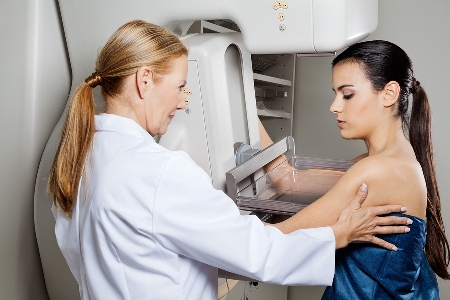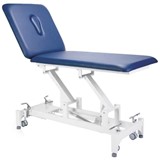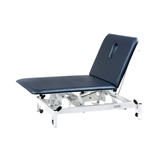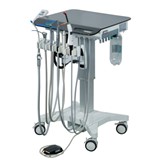They were based on evidence from randomised trials that screening saved lives. But there are now serious doubts about what these programs can and have achieved.
The first major challenge came with the Cochrane Collaboration's review of the benefits and harms of breast cancer screening in 2001.
At that time, publication was delayed while the Cochrane reviewers and authors sorted out their differences. Meanwhile, The Lancet published the review, triggering a heated debate about the value of breast cancer screening that has continued ever since.
The latest update of the review, however, went quietly by.
In 2001, reviewers Peter Gotzsche and Ole Olsen pronounced mammography screening "unjustified" on the evidence from randomised trials. But an editorial in the same edition of The Lancet challenged their assertion.
It noted that: "Evaluation of the outcome of cancer screening at a national level is very much a long-term proposition."
In the latest update, the summary from all the available randomised trials of mammography screening hasn't changed much. That's because, in the intervening decade, the result of only one more trial has been published.
This hasn't changed the bottom line: taken together, the eight randomised trials found screening reduced breast cancer deaths by about 20 per cent. But the three best-quality trials did not show a significant reduction, even after following up for 13 years.
What is new in this review is a discussion of the evidence about breast screening that's accumulated from other sources since screening became common practice.
Does breast screening save lives?
First, it's clear that breast cancer treatment has advanced significantly in the last few decades. A 2012 meta-analysis found that polychemotherapy can reduce breast cancer deaths by about one third, and earlier work demonstrated the benefits of hormone therapy.
A 2012 study assessing the impact of screening in Australia found that advances in treatment (rather than screening) were primarily responsible for the decline in breast cancer deaths seen over the last 20 years.
So it's plausible that screening isn't as necessary now as it was back in the 1960s to 1980s, when most of the randomised trials of screening began.
What's more, there's a very mixed picture emerging from non-randomised (observational) studies of screening, including screening program evaluations. BreastScreen Australia (established in 1991) reports that the national screening program has reduced breast cancer deaths by between 22 per cent and 30 per cent. It notes that the biggest effects are in areas where participation in screening is greatest.
This is at odds with the Australian study described above. There, researchers found the benefit happened too early (before breast screening was fully implemented) to be attributed to screening, and was greatest among women between the ages of 40 and 49, who have the lowest participation in screening. It was lowest among women aged 60 to 69 years, who have the highest participation in screening.
The Cochrane review outlines a similarly confused picture from international observational studies. Some claim screening has delivered expected declines in breast cancer deaths across Europe, the United Kingdom and the United States.
A US analysis, for instance, estimated that between 28 per cent and 65 per cent of the decline in breast cancer mortality is due to screening with the rest coming from better treatment.
But other studies show that declines in breast cancer death rates have been just as great or greater among women too young for screening, or in areas where screening has been limited or not provided at all. Increased breast cancer awareness - or hyperawareness - may also play a part.
If screening works, it must do so by picking up breast cancers earlier so that there should be a drop in the rates of advanced breast cancer, as well as a drop in deaths. But there has been only an 8 per cent decline in the rate of advanced (late stage, or metastatic) cancer in the United States over the last 30 years. This suggests that screening is having, at best, a small effect.
This something is better than nothing, right? Not quite, because breast screening can also cause harm.
Part 2 of 'Growing uncertainty about breast cancer screening' will feature in the NewsWire Thursday 8 August.






-160x160-state_article-rel-cat.png)















